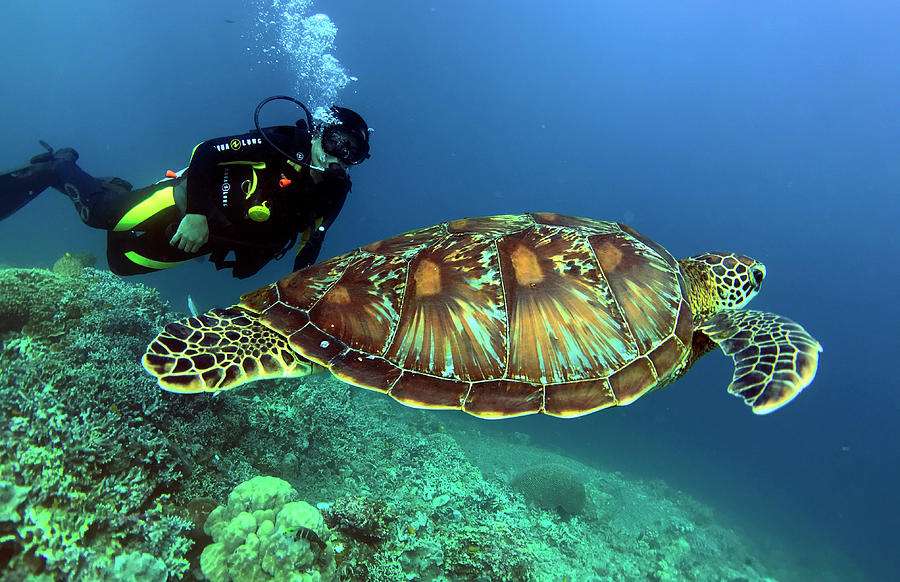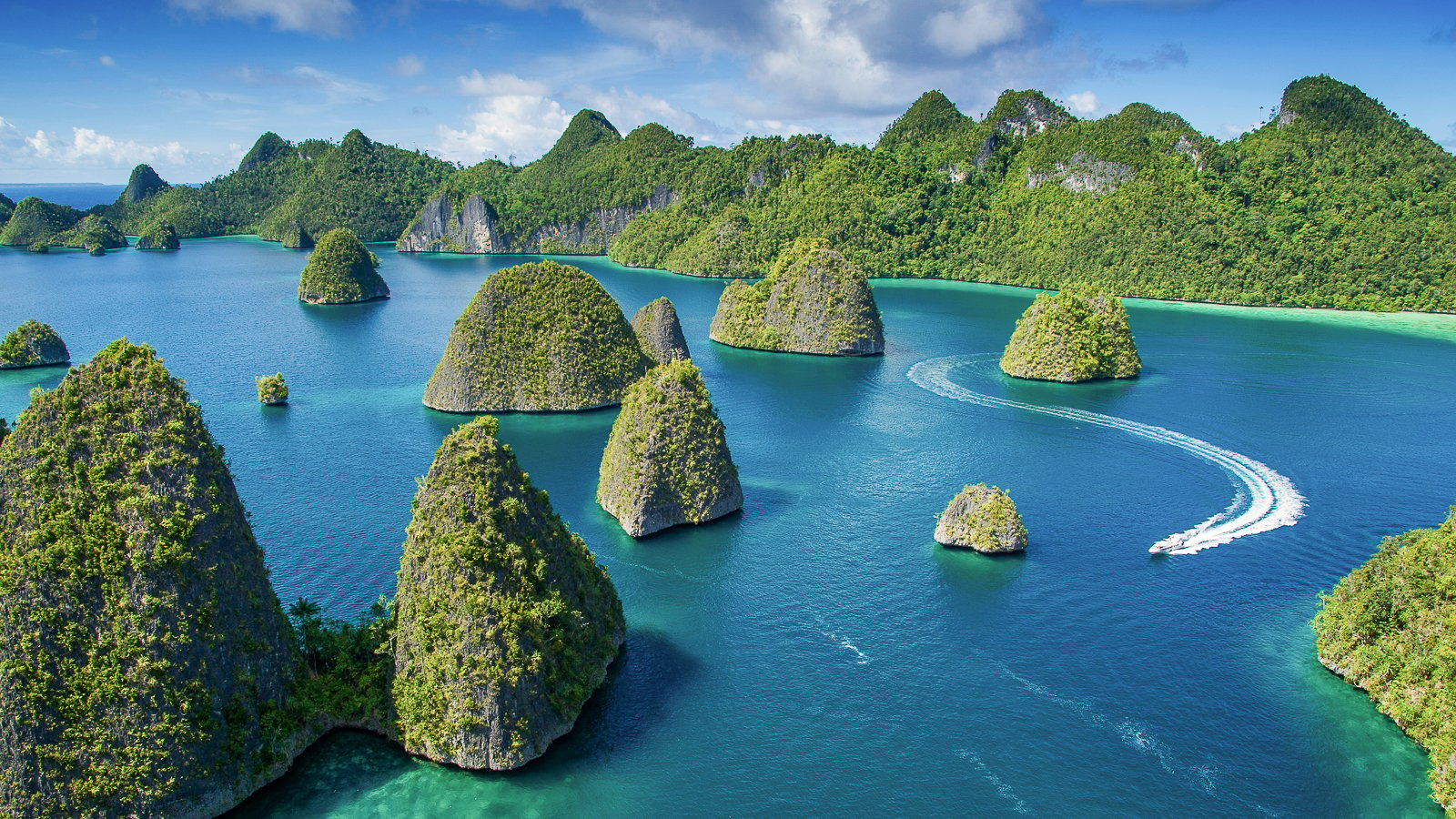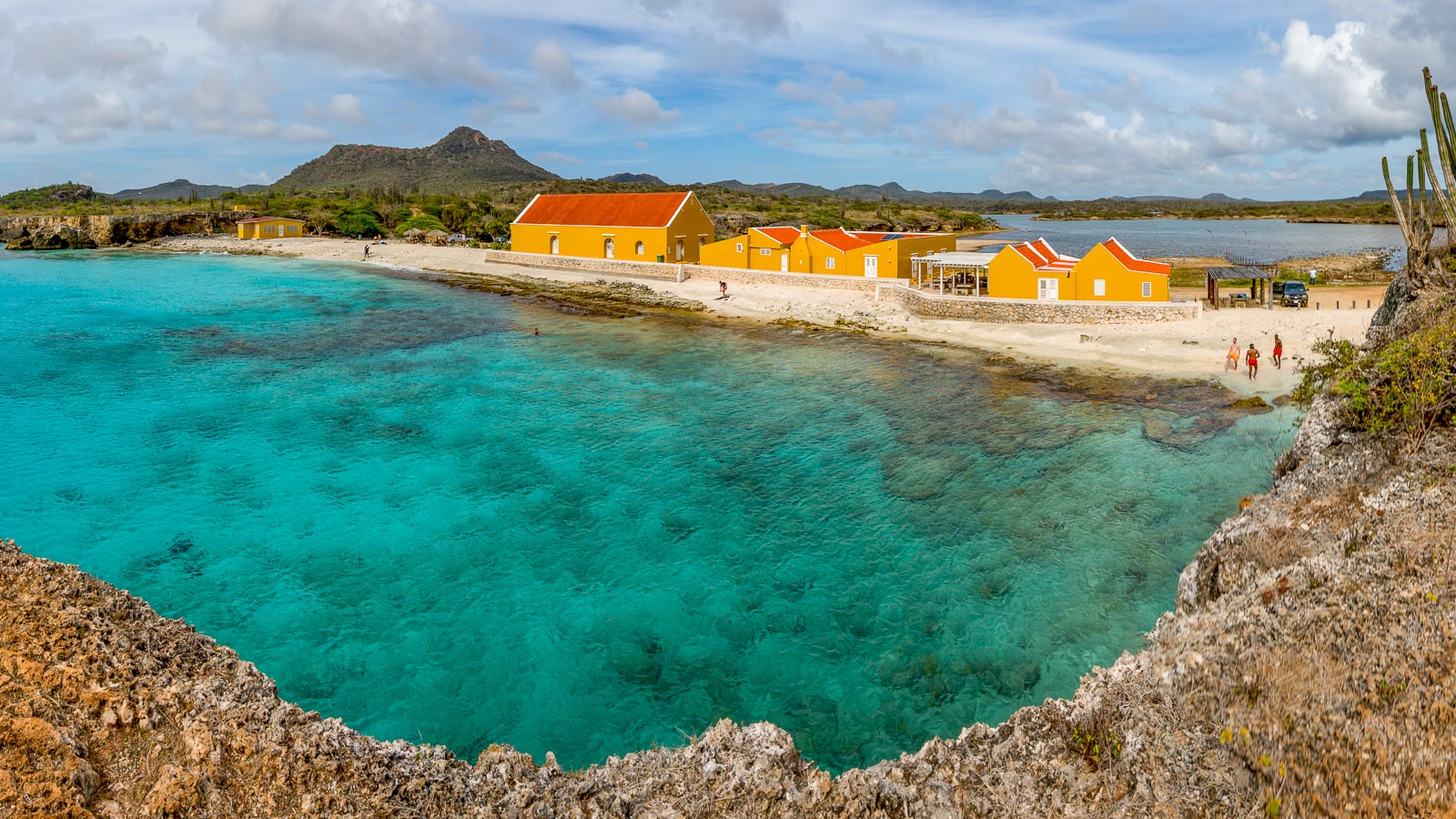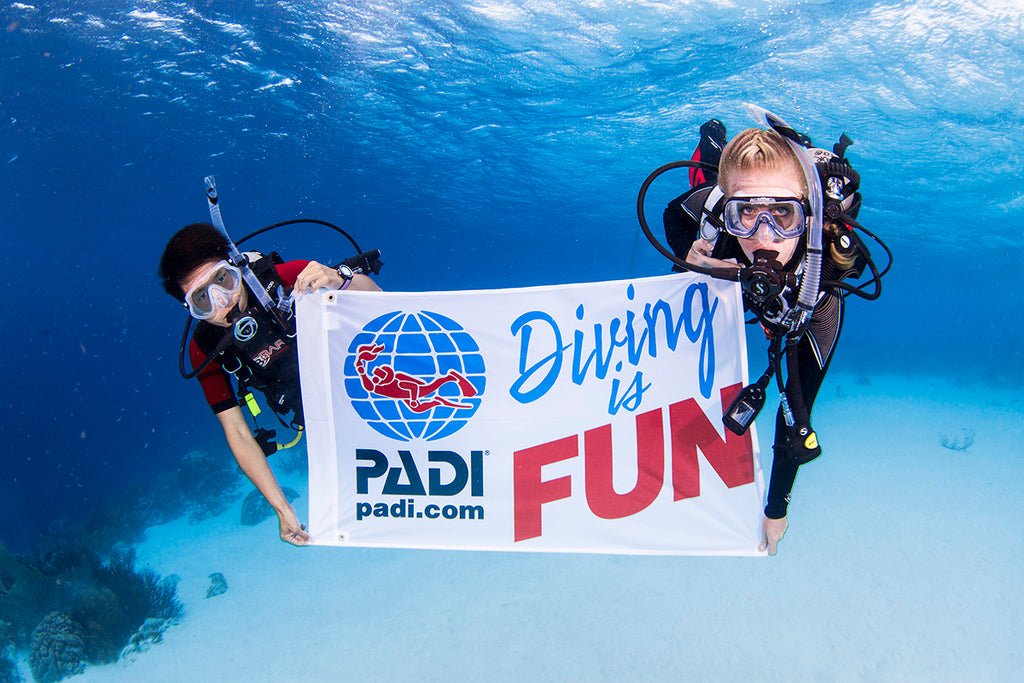Dive Into Sustainability: Exploring the World of Eco Diving!

Eco diving, also known as environmentally friendly diving or sustainable diving, is a practice that focuses on minimizing the negative impact of recreational diving on marine ecosystems. It is rooted in the principles of conservation, preservation, and responsible behavior underwater. Eco divers strive to enjoy the beauty and wonders of the underwater world while taking steps to protect and preserve it for future generations.
Eco diving involves a set of techniques and practices that reduce the ecological footprint of diving activities. This includes respecting marine life by maintaining a safe distance and avoiding any behavior that may harm or disturb underwater creatures. It also includes adopting proper buoyancy control to minimize contact with delicate coral reefs and other fragile marine habitats. Eco divers use reef-safe sunscreen and cosmetics to avoid introducing harmful chemicals to the marine environment, and they are diligent about proper waste management both underwater and on land. By consciously practicing eco diving, divers actively contribute to the conservation of marine biodiversity and promote sustainable tourism. Eco diving not only enhances the diving experience but also fosters a deeper connection and appreciation for the intricate beauty and delicate balance of the underwater world.
The Principles of Eco Diving
Eco diving is guided by several principles that aim to minimize the environmental impact of diving activities and promote the conservation of marine ecosystems:
A. Understanding and respecting marine life: One of the fundamental principles of eco diving is to develop a deep understanding and appreciation of marine life. Divers strive to learn about different species, their behaviors, and their habitats. By understanding marine life, divers can interact with the underwater world in a respectful and mindful manner.

B. Minimizing impact on the environment: Eco divers aim to minimize their impact on the fragile marine environment. Through proper buoyancy control techniques, divers avoid damaging coral reefs and other sensitive habitats. They also use reef-safe sunscreens and cosmetics to prevent the release of harmful chemicals into the water. Additionally, divers are conscious of their movements underwater, avoiding contact with marine organisms and refraining from collecting or disturbing any natural elements.
C. Promoting conservation efforts: Eco diving actively supports conservation efforts aimed at protecting marine ecosystems. Divers often participate in initiatives and organizations focused on marine conservation, such as reef restoration projects, beach clean-ups, and advocacy for sustainable fishing practices. By promoting conservation efforts, eco divers contribute to the long-term preservation of marine biodiversity.
D. Contributing to scientific research: Eco divers play a crucial role in scientific research by contributing valuable data and observations. Divers can assist scientists in documenting various aspects of marine life, such as species distribution, population trends, or coral reef health assessments. This citizen science approach helps expand scientific knowledge and guides conservation actions.

Techniques and Practices for Eco Diving
A. Reef-safe sunscreen and cosmetics: When participating in eco diving, it is essential to use reef-safe sunscreen and cosmetics. Conventional sunscreens contain chemicals such as oxybenzone and octinoxate, which have been found to harm coral reefs and marine life. Reef-safe alternatives, on the other hand, utilize mineral-based ingredients like zinc oxide and titanium dioxide, which provide effective sun protection without causing harm to aquatic ecosystems.
B. Proper buoyancy control to avoid damaging coral reefs: Maintaining proper buoyancy control is crucial to avoid damaging coral reefs. Divers should strive to minimize contact with the reef by practicing neutral buoyancy and finning techniques that do not disturb the delicate structures. By staying a safe distance from the coral and avoiding accidental kicks or touches, divers can significantly reduce their impact on these vital ecosystems.
C. Responsible underwater photography and videography: Underwater photographers and videographers have a responsibility to minimize their impact on marine life and habitats. It is crucial to avoid touching or manipulating marine organisms for the sake of capturing an image. Additionally, divers should be mindful of their movements to prevent damaging the surrounding environment and disturbing the natural behaviors of the marine life they encounter.

D. Avoiding marine life harassment: Eco divers must respect marine life and avoid any form of harassment. This includes not chasing, capturing, or provoking marine organisms. Divers should maintain a safe distance from animals and observe them without causing stress or altering their natural behaviors.
E. Proper waste management underwater: Responsible waste management is important even underwater. Divers should avoid discarding any waste, including fishing lines, plastic, or other debris, into the ocean. It is crucial to bring back any trash encountered during a dive and dispose of it properly on land, recycling wherever possible.
F. Supporting sustainable diving operations: Eco divers can support sustainable diving operations by choosing dive operators that prioritize environmental responsibility. This may include selecting operators who use fuel-efficient engines, follow responsible fishing practices, and have proper waste management systems in place. By supporting such operations, divers contribute to the overall sustainability of the diving industry and help protect marine ecosystems.

Top Eco Diving Destinations
There are numerous eco-friendly diving spots around the world that offer breathtaking underwater experiences while prioritizing the preservation of marine ecosystems. Some popular destinations include:
The Great Barrier Reef, Australia: The Great Barrier Reef is a UNESCO World Heritage site and one of the world's most famous diving destinations. It spans over 2,300 kilometers and is home to a vast array of coral species, colorful fish, turtles, sharks, and more. Conservation efforts here include strict regulations on fishing, tourism, and water quality to protect this fragile ecosystem.
Raja Ampat, Indonesia: Raja Ampat is part of the Coral Triangle, known for its astonishing marine biodiversity. Divers can explore vibrant coral reefs, encounter rare marine species, and witness the famous "manta ray ballet." Conservation initiatives focus on sustainable tourism, protecting marine areas, and engaging local communities in conservation efforts.

Palau, Micronesia: Palau's dive sites offer diverse marine life, including reef sharks, manta rays, and abundant coral formations. The country has established the Palau National Marine Sanctuary, one of the world's largest marine protected areas. Palau's conservation efforts also include the banning of harmful fishing practices and promoting responsible tourism.
Silfra, Iceland: Silfra is a unique diving location situated within Thingvellir National Park. It offers crystal-clear visibility in a fissure between the Eurasian and North American tectonic plates. Divers can enjoy a surreal experience, swimming between two continents and exploring amazing underwater geological formations. Conservation efforts focus on preserving the pristine water quality of Silfra and the delicate surrounding ecosystem.

Socorro Islands, Mexico: The Socorro Islands, also known as the Revillagigedo Archipelago, are remote volcanic islands famous for their encounters with large pelagic species. Divers can swim with whale sharks, giant manta rays, dolphins, and humpback whales. The marine reserve regulations protect these incredible creatures and their habitats.
Belize Barrier Reef, Belize: The Belize Barrier Reef Reserve System is the second-largest coral reef system globally and a UNESCO World Heritage site. With diverse marine life and iconic formations like the Great Blue Hole, Belize offers fantastic diving opportunities. Conservation efforts revolve around coral reef monitoring, sustainable fishing practices, and marine reserve management.
Sipadan Island, Malaysia: Sipadan Island, located in the Celebes Sea, is known for its rich biodiversity and stunning underwater landscapes. Divers can encounter turtles, schooling barracudas, and reef sharks in abundance. Conservation efforts include limiting visitor numbers and strict diving regulations to protect the fragile reefs and marine life.

Maldives: The Maldives is renowned for its pristine white-sand beaches, turquoise waters, and incredible dive sites. Divers can explore vibrant coral reefs and encounter diverse marine species, including manta rays and whale sharks. The Maldives has implemented protected marine areas, bans on shark fishing, and sustainable tourism practices.
Koh Phi Phi, Thailand: Koh Phi Phi offers stunning dive sites with colorful corals, tropical fish, and even the chance to dive with blacktip reef sharks. Conservation initiatives focus on coral reef restoration, reducing plastic pollution, and sustainable tourism practices.
Bonaire, Caribbean: Bonaire is a diver's paradise, with its clear waters, healthy coral reefs, and abundant marine life. The entire island is designated a marine park, offering divers access to well-preserved sites. Conservation efforts include strict regulations on fishing, mooring systems to prevent anchor damage, and coral reef monitoring initiatives.

Benefits of Eco Diving
Eco diving offers a range of benefits that enhance the overall diving experience, promote sustainable tourism, contribute to the preservation of marine biodiversity, and provide personal fulfillment for eco-conscious divers. By practicing responsible diving behaviors, such as maintaining proper buoyancy and avoiding contact with marine life, eco divers can enjoy a more immersive and respectful interaction with the underwater environment. This allows for a deeper appreciation of marine ecosystems, creating a more authentic and fulfilling diving experience.
In addition, eco diving supports sustainable tourism practices by choosing dive operators and destinations committed to eco-friendly practices. This helps minimize environmental impacts, supports local economies, and creates job opportunities within the communities. Participating in eco diving also contributes to the preservation of marine biodiversity. By adopting practices that minimize disruptions to marine ecosystems, divers help reduce stress on delicate habitats and species. Additionally, through supporting conservation efforts and engaging in initiatives like reef restoration projects or citizen science programs, eco divers actively contribute to the long-term protection and preservation of marine biodiversity.

Eco Diving Organizations and Certifications
There are several reputable organizations that focus on promoting eco diving practices and marine conservation. These organizations play a vital role in raising awareness, establishing guidelines, and implementing programs to protect fragile marine ecosystems. Some prominent eco diving organizations include Project AWARE, Green Fins, and Reef Check Foundation. These organizations collaborate with dive operators, governments, and local communities to promote responsible diving practices and sustainability.
Eco diving certifications validate a diver's knowledge and commitment to practicing environmentally friendly diving. These certifications provide divers with the necessary skills and understanding to minimize their impact on the underwater environment. They typically cover topics such as buoyancy control, responsible marine life interactions, and reef conservation techniques. Eco diving certifications also demonstrate a diver's dedication to sustainable dive practices and their support for marine conservation efforts.
For divers interested in obtaining eco diving certifications, there are several reputable organizations and programs available. The Professional Association of Diving Instructors (PADI) offers various specialty courses focused on eco diving, such as the Project AWARE Specialty and Coral Reef Conservation Specialty. Other organizations, like Green Fins and the Global Sustainable Tourism Council (GSTC), offer certification programs and guidelines specifically focused on sustainable dive operations. Divers can also seek out local dive operators who have received certification from recognized eco diving organizations to ensure they are diving with operators committed to environmental conservation.

Embracing eco-friendly practices in diving brings personal fulfillment and satisfaction as divers align their passion for diving with environmental responsibility. By making a positive impact on marine conservation, eco-conscious divers develop a deeper connection with the underwater world and become advocates for the protection of marine environments. Taking pride in being stewards of the ocean, eco divers experience a sense of personal satisfaction knowing that their actions help preserve these fragile ecosystems for future generations. The future of eco diving holds immense potential for marine conservation. As more divers prioritize sustainable practices, a snowball effect can be generated, bringing about positive change in marine ecosystems worldwide!
